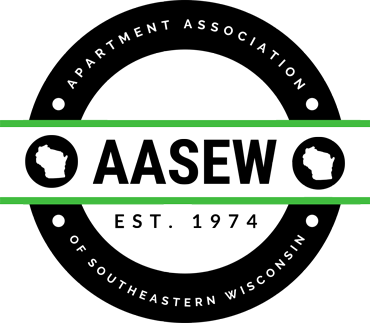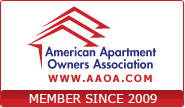Tristan is the Executive Vice President and shareholder with the law firm of Petrie+Pettit and focuses his practice in the area of landlord-tenant law representing landlords and property management companies throughout Wisconsin.
Call us: (414) 276-2850
Avoid Homemade Rental Agreements . . . Regardless of What the Tenant Resource Center Tells You
Posted by Tristan R. Pettit, Esq. in Rental Agreements, Rental Documents / Comments
I received a troubling call from a landlord last week. This landlord had some questions regarding management of her rental properties and told me that she had previosuly called the Landlord-Tenant Resource Center for assistance. I informed the caller that there is no such animal as the Landlord-Tenant Resource Center and that she had actually spoken with the Tenant Resource Center, a very pro-tenant organization.
The landlord continued to tell me that she has been using the Residential Rental Agreement sold at Wisconsin Legal Blank Co. Inc. for the last 10 years and has been very happy with it. She advised me that when she mentioned this fact to the person at the Tenant Resource Center that she was informed that she should stop using the WLB rental agreement immediately as it was vague and indefinite and would not stand up in court. She was then told that she should instead draft her own lease in the future.
As many of you know, I have been the author of Wisconsin Legal Blank’s residential rental agreement for the last 15 or so years, so this criticism was news to me. I explained that I have been representing landlords throughout Southeastern Wisconsin for years and during those hundreds of court appearances, I have never had a tenant or a tenant's attorney raise that argument. More importantly, I had never had a court make a ruling the the WLB rental agreement was vague or lost a case based on the alleged vagueness of the WLB rental agreement. I am also quite sure that if other lawyers or landlords had lost a case as a result of the wording of the WLB rental agreement, that either I or Wisconsin Legal Blank would have received an angry telephone call by now.
I proceeded to tell this landlord about the Apartment Association of Southeastern Wisconsin and that it was an organization comprised of landlords and for landlords and that she should consider calling it in the future should she have any questions about the management of her rental properties, and not the Tenant Resource Center. I also encouraged her to join the AASEW and believe that she is now a member.
What troubled me most about this call was not that someone was critical of the WLB rental agreement, but rather that the Tenant Resource Center advised this landlord that she would be better off drafting her own rental agreement in the future. Those of you that have heard me speak on the topic of rental documents before know that one of my biggest concerns is when a landlord drafts their own rental agreement. I would say that over 80% of the landlord-drafted rental agreements that I have reviewed over the years contain illegal clauses or provisions that would most likely render the rental agreement void in Wisconsin.
Inadvertently, landlords who draft their own rental agreements, often will include a provision that violates one of ATCP 134.08’s seven prohibited rental agreement provisions ("The Seven Deadly Sins"). The result of making such a mistake is that the landlord now has a rental agreement that is unenforceable against the tenant (but yet is still enforceable by the tenant against the landlord). One needs to look no further than the 2001 Wisconsin Supreme Court case of Baierl v. McTaggart, 245 Wis.2d 632, 629 N.W.2d 277, to see the disastrous results of using a poorly drafted lease.
In actuality, a landlord is better served by using a pre-printed rental agreement that has been drafted by a lawyer knowledgeable in Wisconsin residential landlord tenant law -- and is reviewed regularly by that lawyer -- then they are by drafting their own rental agreement or cutting and pasting together a conglomeration of rental agreements found on the internet.
Incidentally, many of the so-called state specific rental agreements that can be purchased on the internet also contain illegal provisions that will render them unenforceable in Wisconsin. One of these online companies actually contacted me to draft a lease for them about 5 years ago, but when they balked at actually paying me for my work, I opted to not assist them. Apparently they found an attorney who was willing to work for free but who -- unfortunately for the unsuspecting landlords that purchase this company's online rental agreements -- did not know Wisconsin residential landlord-tenant law very well and included language that would violate ATCP 134.08. There are similar issues with the rental agreements sold at Office Depot and Office Max.
I have been mulling over the possible intent of the Tenant Resource Center employee that advised this landlord to draft her own rental agreements in the future. All I can come up with is that tenant advocates must be putting out this so-called “advice” hoping that uneducated landlords will follow it, thus increasing a tenant’s chance of prevailing in court due if the landlords' self-drafted rental agreement contains an illegal provisions thus making it unenforceable against the tenant.
Call me jaded, but I can't come up with any other reasonable motivation.




